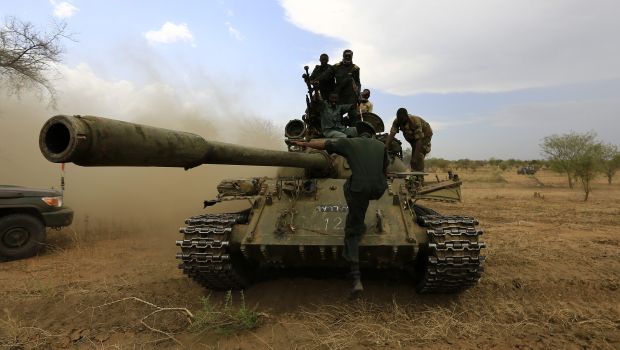The rule of political Islam has endured in Sudan because it is associated with the military, but military rule will not survive for long. Political Islam has been unsuccessful in all cases, including when it was implemented through military rule. Even if this experiment has had some success in Sudan, I believe its overall success is limited—very limited. Twenty-five years is a very short period in the long run.
We can draw on many examples, not just from Sudan. No one denies that many systems of power have ruled Sudan, one after the other. They took on a religious and primarily militaristic character. But these systems have failed, due to the existence of nationalist elements within the Sudanese Armed Forces (SAF).
We must first differentiate between a government that rules through religion, and one that infuses its political outlook with religion.
Regarding President Omar Al-Bashir’s regime, I think its end is very near. There are nationalist forces within the SAF that oppose the involvement of religion in politics. And this particular period of military rule has continued because of a carrot-and-stick policy.
We should look at what is happening in North Africa, specifically in Algeria and Libya. Algeria, our sister country, has been able to endure the rise of Islamist currents and the bloody decade of the Algerian Civil War. Though it was indeed bloody, a glimmer of hope still remained. Was it really a disgrace that Algerian President Abdelaziz Bouteflika voted in the election while sitting in a wheelchair? Nor is it a matter of disgrace for the Algerian people, who believe that the continuation of a secular political system will preserve society.
This is akin to what is happening in Libya now, after the end of the era of Muammar Gaddafi. While Islamicized remnants endure within Libyan territory, today we are witnessing the attempts of the Libyan armed forces to restore the national role of the state, led by Gen. Khalifa Haftar.
We see the same thing in Tunisia. Although Rachid Ghannouchi’s Ennahda Movement in Tunisia is a special case, its proximity and approach to political Islam calls the true nature of the movement into question. There are many serious attempts and tireless efforts to restore the role of Tunisia on an international level and to refute this experiment in Islamization.
Sudan is not isolated from all of these developments. A religious, propagandist current cannot be contained in the overall political process, especially with regards to relations between states. This will not work.
The role of Egypt and the events it has witnessed in recent months cannot be ignored. Of course, Egypt is the beating heart of Arabism and it has an intellectual brilliance in the Arab and African worlds.
If we assume this is the case, then Arabs are eager for the Egyptian role and Egypt is also eager for its role in the Arab world. On the African level, we cannot deny that Egyptian–African relations are reciprocal. Political Islam in international politics has no presence. We cannot move forward without mentioning the blessed signs of Egyptian relations with the Democratic Republic of the Congo (DRC), Kenya and Ghana.
Egyptian–Arab–African relations will persist. When we talk about politics in the international arena, there are basic rules you must respect and operate under. When we talk about Islam as a religion, then it is essentially a relationship between the believer and God, without the intervention of human beings. Islam is not the only witness to these types of interventions—the Catholic Church in Europe was a witness too, before the dawn of the Renaissance.
Therefore I believe that the movement of political Islam in Sudan, whether short- or long-term, is a temporary movement that will not last. It is better for the movement’s organizers to take the initiative now to avoid any problems in the future. They should take the initiative and remove the religious cloak that has been thrown over the practice of politics, so that every Muslim can maintain his faith between himself and God. The practice of politics has its own origins, traditions and customs. It is far from the relationship of believers with God, which is a very special relationship.
There was a cost in embracing political Islam and trying to impose it on the people of Sudan, where it is well known that the majority of South Sudan condemns traditional beliefs. Islamic values cannot be imposed upon the ritual practices of life there. The strange thing is that the first to encourage the separation of the South from the North were officials from the North—who follow political Islam.
The counterpoint to this article can be read here.
